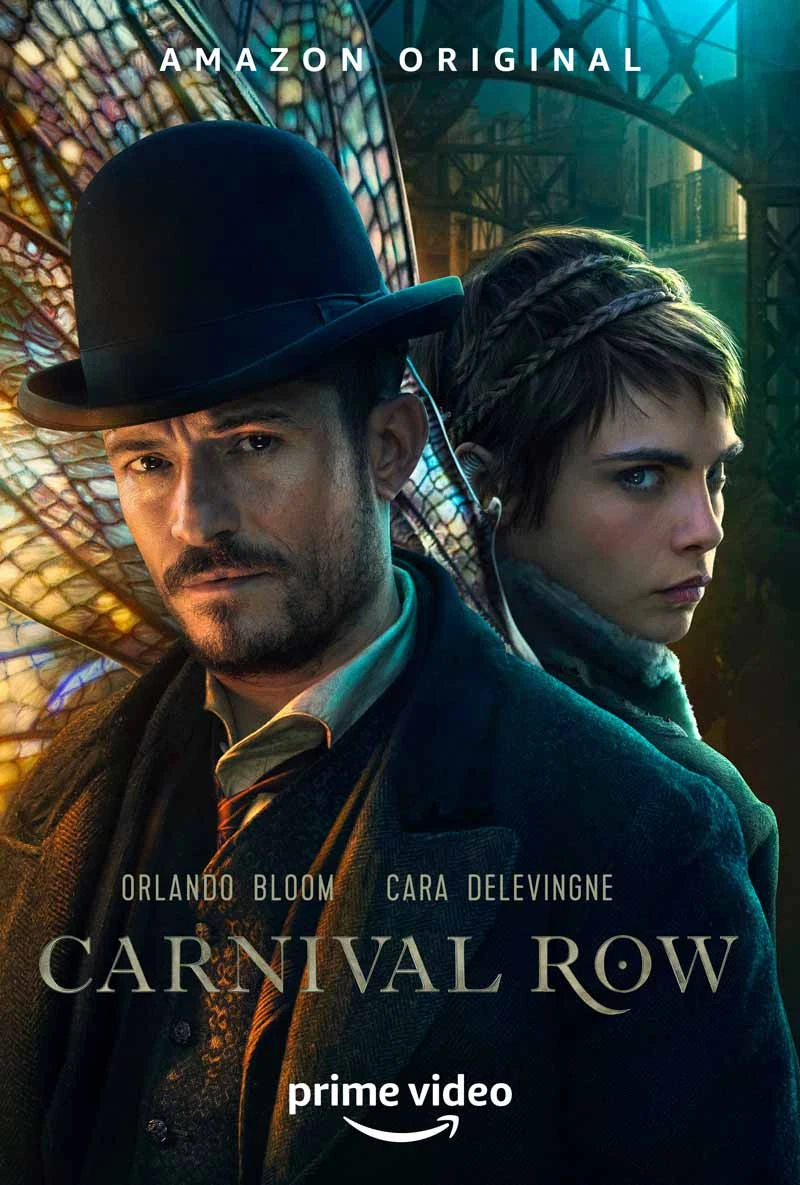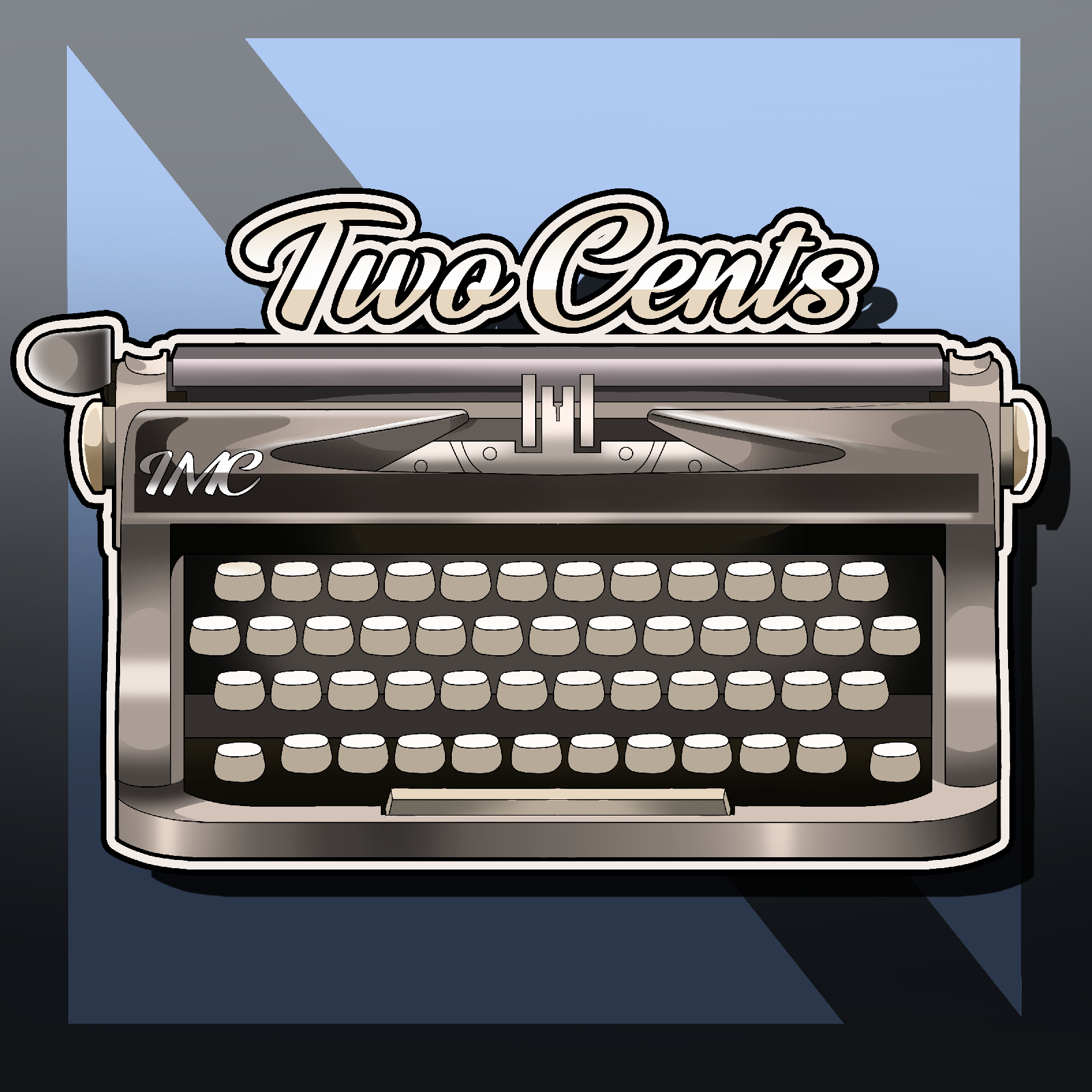Carnival Row
I actually finished the much shorter Carnival Row before I finished Neon Genesis Evangelion, which I wrote about last week. The latter series, though, had been around much longer than Amazon's latest series effort, so I deemed it necessary to talk about it first. That said, I can now talk about the former series at last.

When Carnival Row first went live on Amazon Prime, I avoided it. I avoided it for the same reason I avoid a lot of content that looks as if it might appeal to me: I didn't want it to suck.
Being a "fantasy fan," I'm always hesitant to try anything new in the genre, whether it's books, TV, or film, because I know that quality can vary from one work to another. Eventually though, when I found myself in need to a new show to watch and get into, I tried it out. And as usual, the same thought hit me when I was about an episode in: "Why the hell hadn't I gotten into this sooner?"
If someone asked me to elevator-pitch (a description of between 5 to 10 words), this show to them, the best way I could describe it is, "The Dresden Files in Victorian England." Like Jim Butcher's series of novels, the show mixes elements of classic, faerie tale-style fantasy with strong plot elements from hardboiled/noir crime fiction. The twist on this mix being that, rather than taking place in a modern setting, like contemporary Chicago, Row takes place in a fictional, European-esque country called The Burge, giving the series more of a gaslight fantasy feel and aesthetic, rather than an urban fantasy one.
Carnival Row strikes a decent balance between, what author Brandon Sanderson calls, the familiar and the strange.
On the one hand, it includes creatures found in many classic fantasy stories, such as Pucks, Witches, Fairies, and Kobolds, all of which stem from European folklore (thus, re-enforcing the Eurocentric feel of the show). It also features a chosen one prophecy, at the heart of which stands our protagonist. And, our hero, Philo, is in many ways a classic "chosen one" hero: someone who shuns their own identity, their own position in the story, for the sake of a reasonably quiet life, at the cost of any true connections in the world.
Still, it also adds some original touches of its own, mainly in the form of its characters. Like many fantasy shows that have arisen in the shadow of Game of Thrones, the show features many gray characters, who don't necessarily fall on one side or another of a good/evil divide. All of the characters have a backstory that inform their faults in the story's present narrative, and allows us, the viewers, to sympathize with them in spite of their flaws. Some characters, of course, are more sympathetic than others, but the even those that we can most vilify possess some trait that makes them understandable, if not sympathetic. It also refuses to, like many other post-GoT shows to deny the realities of human cruelty, violence, or sex (and there is a lot of all three in this series).
Like most everyone who has watched this show, the theme of the show that stands out the most is its overt, almost satirical critique of the society issues of race and class, and how these two things are so often entwined.
Fantasy and Science Fiction have a long, well-documented history of dealing with these issues. The literature itself could be called the literature of outsiders, considering how recurring these themes are in the genre. Mainly they do it through more metaphorical, subtle means, with aliens or fae creatures standing in for a much-maligned segment of contemporary human society.
Where Carnival Row is different is that it tackles these things head on, putting them right at the center of the story. Still, the show manages to avoid the usual pitfalls this choice normally would lead to by having a diverse cast of actors. Granted, most of the actors of color play Fae, while nearly the whole human cast is white, but the message still makes it through, and that message is this: no matter how strange or monstrous someone else might look, human beings are capable of being just as monstrous.

When Carnival Row first went live on Amazon Prime, I avoided it. I avoided it for the same reason I avoid a lot of content that looks as if it might appeal to me: I didn't want it to suck.
Being a "fantasy fan," I'm always hesitant to try anything new in the genre, whether it's books, TV, or film, because I know that quality can vary from one work to another. Eventually though, when I found myself in need to a new show to watch and get into, I tried it out. And as usual, the same thought hit me when I was about an episode in: "Why the hell hadn't I gotten into this sooner?"
If someone asked me to elevator-pitch (a description of between 5 to 10 words), this show to them, the best way I could describe it is, "The Dresden Files in Victorian England." Like Jim Butcher's series of novels, the show mixes elements of classic, faerie tale-style fantasy with strong plot elements from hardboiled/noir crime fiction. The twist on this mix being that, rather than taking place in a modern setting, like contemporary Chicago, Row takes place in a fictional, European-esque country called The Burge, giving the series more of a gaslight fantasy feel and aesthetic, rather than an urban fantasy one.
Carnival Row strikes a decent balance between, what author Brandon Sanderson calls, the familiar and the strange.
On the one hand, it includes creatures found in many classic fantasy stories, such as Pucks, Witches, Fairies, and Kobolds, all of which stem from European folklore (thus, re-enforcing the Eurocentric feel of the show). It also features a chosen one prophecy, at the heart of which stands our protagonist. And, our hero, Philo, is in many ways a classic "chosen one" hero: someone who shuns their own identity, their own position in the story, for the sake of a reasonably quiet life, at the cost of any true connections in the world.
Still, it also adds some original touches of its own, mainly in the form of its characters. Like many fantasy shows that have arisen in the shadow of Game of Thrones, the show features many gray characters, who don't necessarily fall on one side or another of a good/evil divide. All of the characters have a backstory that inform their faults in the story's present narrative, and allows us, the viewers, to sympathize with them in spite of their flaws. Some characters, of course, are more sympathetic than others, but the even those that we can most vilify possess some trait that makes them understandable, if not sympathetic. It also refuses to, like many other post-GoT shows to deny the realities of human cruelty, violence, or sex (and there is a lot of all three in this series).
Like most everyone who has watched this show, the theme of the show that stands out the most is its overt, almost satirical critique of the society issues of race and class, and how these two things are so often entwined.
Fantasy and Science Fiction have a long, well-documented history of dealing with these issues. The literature itself could be called the literature of outsiders, considering how recurring these themes are in the genre. Mainly they do it through more metaphorical, subtle means, with aliens or fae creatures standing in for a much-maligned segment of contemporary human society.
Where Carnival Row is different is that it tackles these things head on, putting them right at the center of the story. Still, the show manages to avoid the usual pitfalls this choice normally would lead to by having a diverse cast of actors. Granted, most of the actors of color play Fae, while nearly the whole human cast is white, but the message still makes it through, and that message is this: no matter how strange or monstrous someone else might look, human beings are capable of being just as monstrous.
Most of the Fae who live in the Burge live on "The Row," and many of them are either manual labors or earn a living in seedier, less dignified jobs (e.g. prostitution and drug-dealing). Those who do live and earn a living outside of "The Row," are nonetheless condescended to and subject to the kind of low-level everyday prejudice (whispered slurs, backhand jabs and diminishments), that some people are all too familiar with, even in the 21st Century.
In depicting this ugliness though, against a backdrop of beautifully realized creatures, a haunting score, and clockwork whodunnit plot, Carnival Row continues the tradition that SF/Fantasy has long carried on: acting as a distorted mirror to reflect the ugliness of our own, mundane world, and forcing us to confront it by hooking us in with a compelling story and marvelously realized characters.
I only hope Amazon recognizes what it has in this show and keeps it going for several years to come because I want to know what happens next.
In depicting this ugliness though, against a backdrop of beautifully realized creatures, a haunting score, and clockwork whodunnit plot, Carnival Row continues the tradition that SF/Fantasy has long carried on: acting as a distorted mirror to reflect the ugliness of our own, mundane world, and forcing us to confront it by hooking us in with a compelling story and marvelously realized characters.
I only hope Amazon recognizes what it has in this show and keeps it going for several years to come because I want to know what happens next.

